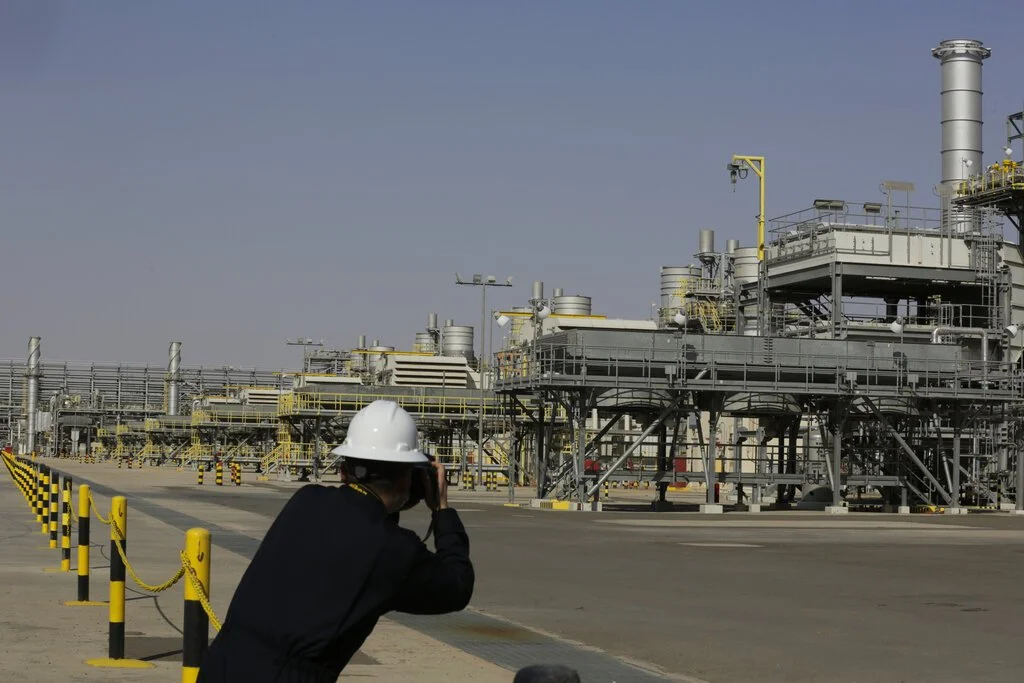OPEC Cutting Oil Production Defines Saudi Arabia's Global Influence
A photographer taking pictures of the Khurais oil field during a tour for journalists, 150 kilometers northeast of Riyadh, Saudi Arabia. (AP Photo/Amr Nabil)
On Oct. 5, the Organization of Petroleum Exporting Countries (OPEC) and its partner nations announced a collective production cut to two million barrels of oil per day, spiking energy prices worldwide. OPEC, primarily led by Saudi Arabia and its Gulf State allies, controls an enormous share of the global energy market and utilizes this leverage with little resistance. OPEC leaders have justified their decision to cut production as a “pre-emptive” action taken to address the “uncertainty” of the global economy. Oil is the Middle East’s most important economic resource, and continues to dictate its involvement in international politics.
The alliance additionally agreed to extend its OPEC Plus partnership, which most notably includes Russia, another one of the world’s largest oil producing countries. Russia will likely benefit heavily from the OPEC production cuts, as the Russian economy is severely dependent on energy exports. A heightened global price of oil and an extension of its economic partnership with the Saudi-led alliance comes at a welcome time for the Russians, as the country is engaged with the war against Ukraine and suffers under severe sanctions from the West.
Through cutting oil production, Mohammed bin Salman (MBS), the Crown Prince of Saudi Arabia, is potentially signaling tepid support for Russia over the West, illustrating a trend of Saudi geopolitical goals. OPEC has, however, denied having a nefarious motive, and Saudi spokespeople claimed that Western opposition to OPEC's decision was driven by “wealth arrogance.”
This decision greatly increases global gas prices and inflation, hurting the economies of the United States and Europe, despite the production capacity of Western oil companies such as Chevron and ExxonMobil. Saudi Arabia’s “de-facto leadership” of OPEC upholds the nation as one of the strongest and most influential countries in the Middle East and across the Muslim world.
This power allows Saudi Arabia to decline requests or demands from countries like the United States. American President Joe Biden, due to domestic political pressure surrounding gas prices, personally met with MBS to request an increase of gas production. However, OPEC is doing the opposite.
US President Joe Biden meeting with Saudi officials in Saudi Arabia on August 15, 2022 to negotiate an increase in oil production. (AP Photo/Evan Vucci)
However, Saudi officials know that there is a limit to how much they can push around the United States and its Western allies, should they want to maintain a steady supply of military support. MBS and his allies continue to receive weapons deals from the West to “defend” against their Middle Eastern rival Iran. Saudi Arabia’s ability to participate in proxy-conflicts against Iran in countries such as Syria, Yemen, and Iraq is directly correlated to its ability to secure such weapons deals. Additionally, American troops and defense systems are stationed inside of Saudi Arabia. This is one of America's largest points of leverage over Saudi Arabia and the Gulf States.
While Rep. Tom Malinowski (D-NJ) and Rep. Ro Khanna (D-CA) in the U.S. House of Representatives have expressed an interest in utilizing this leverage against the Saudis through congressional or executive action, it is unclear at this time how much institutional support they have from the American political establishment. Saudi Arabia is one of the United States’ most important military strongholds in the region, and removing military resources and canceling future weapons deals with the kingdom would be a massive shift in America’s Middle Eastern security policy moving forward. Given such U.S. investments in the Saudi economy and military, such leverage is unlikely to be wielded against MBS and his regime. Saudi officials understand this dynamic, presumably giving them the flexibility to follow through with OPEC’s production cuts.


